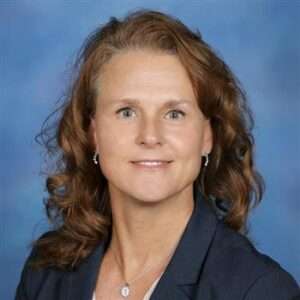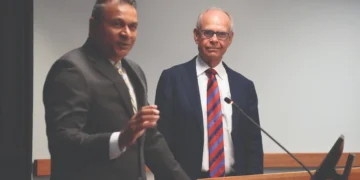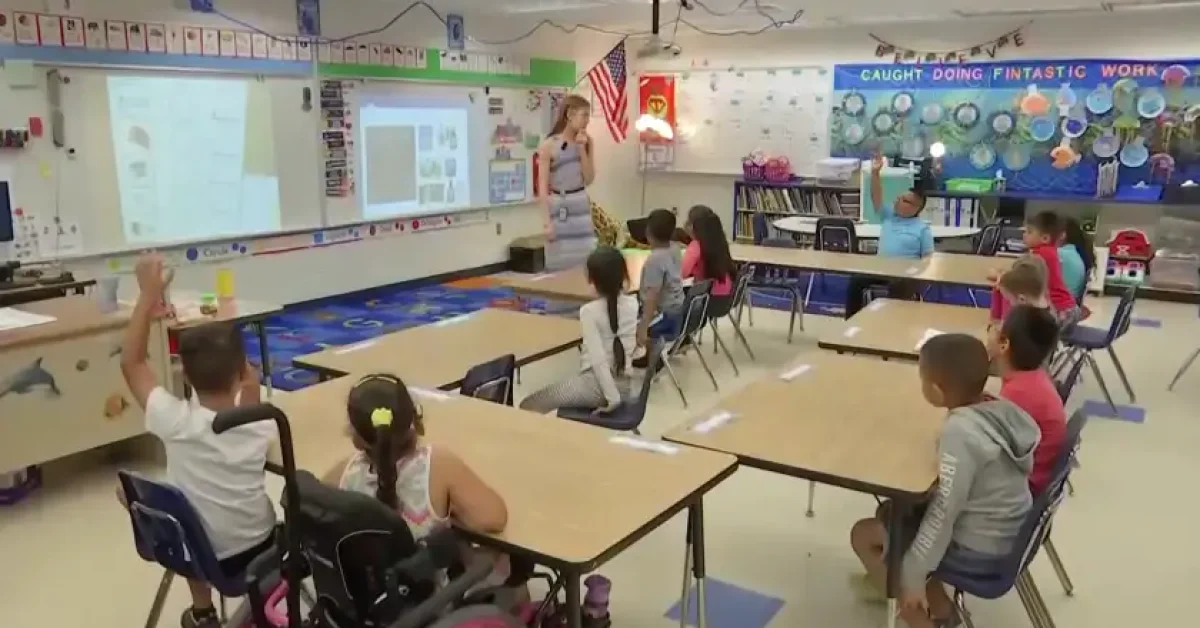When Collier County residents and education experts were asked about their opinions on public education, 51% were satisfied, but some considered the lack of teacher benefits and salary increases as barriers to attracting better teachers.
The Collier County Community Assessment was conducted months before the school board approved a hefty salary increase, but respondents believed all school employees should be better compensated.
“They don’t talk about bus drivers getting raises, they don’t talk about cafeteria workers getting raises, they don’t talk about aides getting paid,” a River Park resident said during a focus group meeting. “The people who are actually doing the hard-core work for the district, other than the teachers, they don’t talk about that.” The assessment, conducted every five years by Q-Q Research Consultants Inc. for the Richard M. Schulze Family Foundation and Community Foundation of Collier County, provides a blueprint for county commissioners, government and school district officials, civic groups, nonprofits and others to work on the county’s future needs.
Focus group participants said childcare is needed to maintain their jobs; childcare demand was high and availability was low. “Participants, notably education experts, reiterated the importance of after-school programming for all grade levels because it provides a safe space for these students to interact, socialize and spend time,” the assessment noted. (Collier County Parks & Recreation also provides after-school and voluntary pre-kindergarten programs.) Respondents also worried about the effects the pandemic had on students, cited a need for more English-language learner support and expressed concern about education being politicized in the county and state.
The assessment showed that 34% were satisfied with public pre-kindergarten through high school education, while 17% were very satisfied. In contrast, 10% were dissatisfied and 4% were very dissatisfied with PreK-12 education, and 35% didn’t have an opinion.
When asked to rank what the county’s top three priorities should be, public education/workforce training was ranked No. 5, at 24%; even higher for parents with children at home, at 27%. It trailed the No. 1 concern, affordable housing (65%), managing growth and development (63%), the environment and emergency planning (41%) and bringing better jobs to the area (32%).
 However, residents in some ZIP codes believed public education and workforce training should be a higher priority. They lived in Goodland (33%), Grey Oaks and surrounding neighborhoods (33%) and Immokalee (28%).
However, residents in some ZIP codes believed public education and workforce training should be a higher priority. They lived in Goodland (33%), Grey Oaks and surrounding neighborhoods (33%) and Immokalee (28%).
Just before the assessment results were released on Nov. 28, the Collier County School Board approved a salary package representing a $26 million increase, roughly 13% more when salary supplements, such as teaching night classes, are included. The contract raised starting teachers’ base salary from $50,000 to $54,000 and allowed them to apply to receive credit for up to 18 years of verified outside experience, including current employees who were given credit for 10 years.
“The higher the years of experience translates to high-quality education in the classroom, and that’s important for the community to understand that’s been our focus, that we want to recognize teachers for their experience,” said Val Wenrich, the district’s chief human resources officer, noting that the average teacher’s salary, which is being reviewed by the state, is expected to be $62,000-$69,400.
The increase came a year after a 9.7% raise and salary increases totaling 23% during the previous three years. Yet this past year, the district began the school year with 70 vacancies and 40% of teachers driving to work from outside the county.
A recent survey of district employees by Superintendent Leslie Ricciardelli showed 64% fear they’ll have to leave the district for other employment opportunities due to high housing costs, and 45% don’t expect to have a stable housing situation next school year, with 80% citing high housing and rental costs.
That has the teachers’ union concerned. “The raises aren’t livable,” said Ken Mouton, president of the Collier County Education Association, noting that he just met with three young female teachers who told him they have to leave because they can’t afford to live here.
“Over 30% of our teachers live in Lee County and it’s growing,” he said. “Our wages have not kept pace with the cost of living in Collier County. … You would need an income of around $80,000 to $90,000 to keep your head above water, but the majority of our teachers don’t even make $80,000 or $90,000.”
The median rent in Collier County is $2,230, while market rent is $3,922, but the vacancy rate for affordable units is just 1.2%. Meanwhile, Naples home prices increased 88% from pre-COVID prices, according to NABOR, with median prices for a single-family home reaching $765,000 and condos hitting $465,000. Since 2018, the Board of County Commissioners has approved 3,891 affordable- housing units, but many won’t be built for years.
“Normally, when these kids come out of college, they have loans to pay off,” Mouton said of the high cost of living, adding that teachers also don’t feel valued. “It’s all the things that are being placed on the teacher’s plate, them being vilified, not being paid enough, being overworked, not being respected; the job is not being respected. That is the reason why we have a teacher shortage now.”
So, what other steps can be taken? Are there other best practices Collier can consider? The Naples Press asked school experts about their thoughts and what’s being done.

Valerie Wenrich
Val Wenrich
Chief Human Resources Officer, CCPS
We did a very lucrative package for teachers during the last round of negotiations. Our average teacher salary went up significantly. We also are allowing teachers to bring in additional years of experience, which went from 10 years to 18 years, and we’re recalculating many teachers. A little over 280 applied to have their years of experience recalculated, so they stand to be able to earn up to $10,000 more if we can verify their experience.
So, we are in the business of providing as much benefit to our employees through salary and benefits as possible, and we are not seeing the attrition we have seen in previous years. And we’re seeing a lot of applications from new applicants from surrounding counties and outside of the state.
We accept 18 years, while Lee County only accepts 10 years of experience. It’s a budgetary thing. We capped it at 10 years for a long time because it’s costly to allow someone to enter into a salary schedule at a very high rate of pay. But we’ve adjusted it this year because we’re getting more experienced teachers and want to value them. We want experienced teachers. … We are the third highest (county) in the state for the average years of teacher experience. We sit at 12.3, just behind Miami-Dade and Sarasota.
Affordable housing
The 35-acre Manatee property sits adjacent to the elementary school and middle school. The board … put out a request for proposals for builders who might be interested in building essential housing and we would lease them the property. We did only get one builder, which prompted our board to say, “Hey, do we really even have a problem?”
So, Chad Oliver and his team developed a survey for all our employees— and we had 3,400 staff complete the survey to basically tell us: Do you have stable housing? If you don’t, what are the reasons for that? Is cost a reason? Is there anything that we can do to support you with information and resources?
Based on that, we got good results, and I shared those results recently with the county commission. We also have an essential housing website that’s open to all our employees, with housing information, support and community resources.
Our benefits department recently did a housing webinar with HELP (Housing, Education, Lending Programs), headed by Michael Puchalla. They found housing for several staff in crisis, and he’s been a great community connection. Our site has a housing guide listing apartment complexes and what the cost is, but that changes hourly. We try to help guide our employees if they’re struggling and we have the resources and the information to share.
The survey (showed) about 50% of the 3,400 employees had a second job, but a lot might have a second job in the sense that they coach, that they’re a ticket-taker at our events, or … might teach (English Language Learners) classes at night, so we don’t know specific detail. … That went out to all employees, so we have everything from classified staff to certified staff, part-time, hourly, nutrition service workers, all the way to the superintendent.
… When you look at the salary ranges of employees that the cost of living in Collier County is hitting more, it’s probably less teachers and more of our non-instructional staff and ancillary support staff, like bus drivers, maintenance, transportation and nutrition services.
But they have a lot of opportunities to earn on top of their salary in supplements. They could be a club sponsor, a coach, a team leader … and could have two or three, which would prevent them from having to work outside the district.
Filling teacher positions
We’ve focused greatly on longterm guest teachers filling vacancies and working daily in the classroom toward certification. Substitutes are now called guests. We like it because they’re truly a guest in our classroom and we want our schools to recognize they’re a very important piece to the education of students. They could be anyone with a bachelor’s degree who has an interest in teaching. They’re not certified … and are not receiving benefits. Last year, we transitioned 120 into full certified, contracted teaching positions. It’s a great pipeline.

Lisa Morse
Lisa Morse
Senior Director of Strategic Engagement and District Initiatives, CCPS
Every one of our elementary schools has an after-school program on campus. Those in Naples are fee-based. They have scholarships available, and the fee is reasonable. Those in Immokalee are provided by nonprofits at no charge to families. In addition, there are some community-based ones, like the Boys & Girls Club and Grace Place, where they pick up the kids and bring them to their center.
Future Ready Collier is a collective of all the providers around education, including early childhood education, a big priority for the community, which did show up in the (assessment).
The on-site programs at schools are with community partners as the provider on campus. We’re looking to open two more early learning centers with partner providers through an appropriation from the state senate. So the district is committed to that initiative—not only to help address it with families, but because we need people to be able to go back to work. To be in the workforce, CCPS employees need childcare. We have employees who struggle to find childcare, so we work to help them, but we also provide programs at schools to help address that.
At Poinciana Elementary School, we have a partnership with (River Park’s) Fun Time Early Childhood Learning Academy for kids under the age of 5. … We ask them to hold 50% of the spots for CCPS employees first, then we make sure all the spots are full.
At Lake Trafford Elementary School, we have a … partnership with Guadalupe Center. In Immokalee High School we work with Guadalupe Center, and at Golden Gate High School we work with Fun Time Academy … It’s a full-day program that goes longer than the school day.
That’s part of some of the work we’ve done with Future Ready Collier. All the nonprofits that work in an educational capacity or with young people are generally part of Future Ready Collier, which looks at community-wide challenges and tries to address solutions, everything from getting kids ready for college or career to getting them ready for school and early-learning education.
It is innovative of our district to have someone in my role. Not every district does that; now more and more districts are doing it. Collier was pretty innovative in doing it initially to really connect and open doors, to connect families and community agencies. There was so much room to improve to make sure kids have this access and programs had resources they needed … from the school district.
We’re working with nonprofits … to try and make it easily accessible for them to help our students and for students to access services. The Schulze Foundation and Community Foundation are huge partners, helping us open doors whenever we can.
There’s no way we can build enough brand-new centers to address early learning needs, so working with the schools and campuses is a cost-effective way to do that. You have to have the support of a superintendent like Dr. Ricciardelli, who finds value in this, so the need is mostly met.

Chad Oliver
Chad Oliver
Chief Communication Officer, CCPS
One strategy that Val and her HR team have utilized over the last few years is capitalizing on people who already live in Southwest Florida, so housing is [less of] a major concern or a barrier for them to take a job with us. Val and her team had many instances where candidates from other states are interested, they want to join CCPS, they’ve been offered a position— then they start diving into the reality of rental prices or home ownership and say, “I love it, I want to join your district, but I can’t afford it.” That’s why Val and her team have focused on the career changers and people who already have housing, whether in Lee County or Collier County.
The new elementary school we’re building off Immokalee Road will open in August 2025 and (construction) probably will start in June. It will feature a first for Collier County Public Schools: a dedicated Pre-K wing to accommodate about 80 Pre-K students. The school will have about 1,000 students, K-12. That shows the importance the district is placing on early learning, specifically Superintendent Dr. Ricciardelli. It’s one of her priorities.
Our district is fortunate to have someone like Lisa who is the connector to all the local businesses and non-profits that work with Future Ready Collier.
Ken Mouton
President, Collier County Education Association Phys-ed teacher, Golden Gate High School
If they have affordable housing for educators, that would help keep them here, but is $54,000 for a young person enough to survive? Rental rates for a two-bedroom apartment are $2,500. It’s not enough.
They need to consider the treatment of teachers. It’s not where it should be and it’s not the respected profession it was 20-30 years ago. Teachers are not being treated the way they should be treated by kids, administration, parents. Teachers aren’t feeling like they’re valuable to education. You don’t feel that way when you don’t get paid what you should be paid.
Why would anyone want to get into a profession where they’re not respected and they don’t feel protected? If you look at the state level, how teachers are being attacked and vilified, and you look at the laws they’ve imposed on teachers, compared to any other profession, it’s unfair. Why would you want to get into a profession like this, where you’re being attacked inside the school, you’re being attacked at the state level?
If you look at the laws being passed to fight us and the laws they’re using to do away with teacher unions, you don’t see the police unions or firefighters’ unions being attacked, just education. Senate Bill 256 is trying to destroy teacher unions. The majority of educators are women, so why are women being attacked?
A big issue is teacher workload, the demands placed on teachers, the number of kids they put in the classroom. With Dr. Ricciardelli, that improved this year. But the ratio is going to get worse. Now they’re going to be putting more kids in the classroom than last year. The policies hinder you in the classroom.
I want to give Dr. Ricciardelli a chance because … we did see some improvements right away; the culture was starting to change. I told her, “You inherited a culture where going inside the school, it was like a hostile environment.” It’s not at all schools. It’s based on the principal, so if you have some schools functioning at a high level, teachers love going to work. … But you have some schools where teachers don’t want to be there.
If you don’t have a teachers’ union, you don’t have the ability to bargain for teachers and salaries. Being vilified at the state level is not good for education. We’re the ones the kids run to.
… We saw a positive change immediately within two or three months of Dr. Ricciardelli being superintendent. She did a survey asking teachers how they felt about certain things … and she went to work making changes. You could see the change in administration, how they were treating teachers, and it was great. She privately spoke with administration about the survey.
The housing survey also was good, but there are some things with the new staffing allocation that are not right. Since I’ve been in education for 30 years, staffing allocations were based on the projected number of students for the next school year. For example, the staffing formula for 2,000 kids is you’re supposed to have 100 teachers. This year, it’s different. They’re saying they have a new staffing formula and we’re putting more kids in the classroom. There used to be a class-size law.
If you’re putting more kids in a class, that means you’re going to need fewer teachers. But with more students (homework, tests and preparation), teacher workload increased. How are they helping education? It’s overwhelming the teachers with more work.
The state is giving more money per student than the previous year. We’re going to be bargaining (for more money) because the state increased spending for each student. I don’t see how (the new staffing formula) can help the problem, except for fiscally, numbers-wise, they can say we don’t have a teacher shortage anymore. It’s fiscal manipulation.”
This story was published in The Naples Press on May 3.





